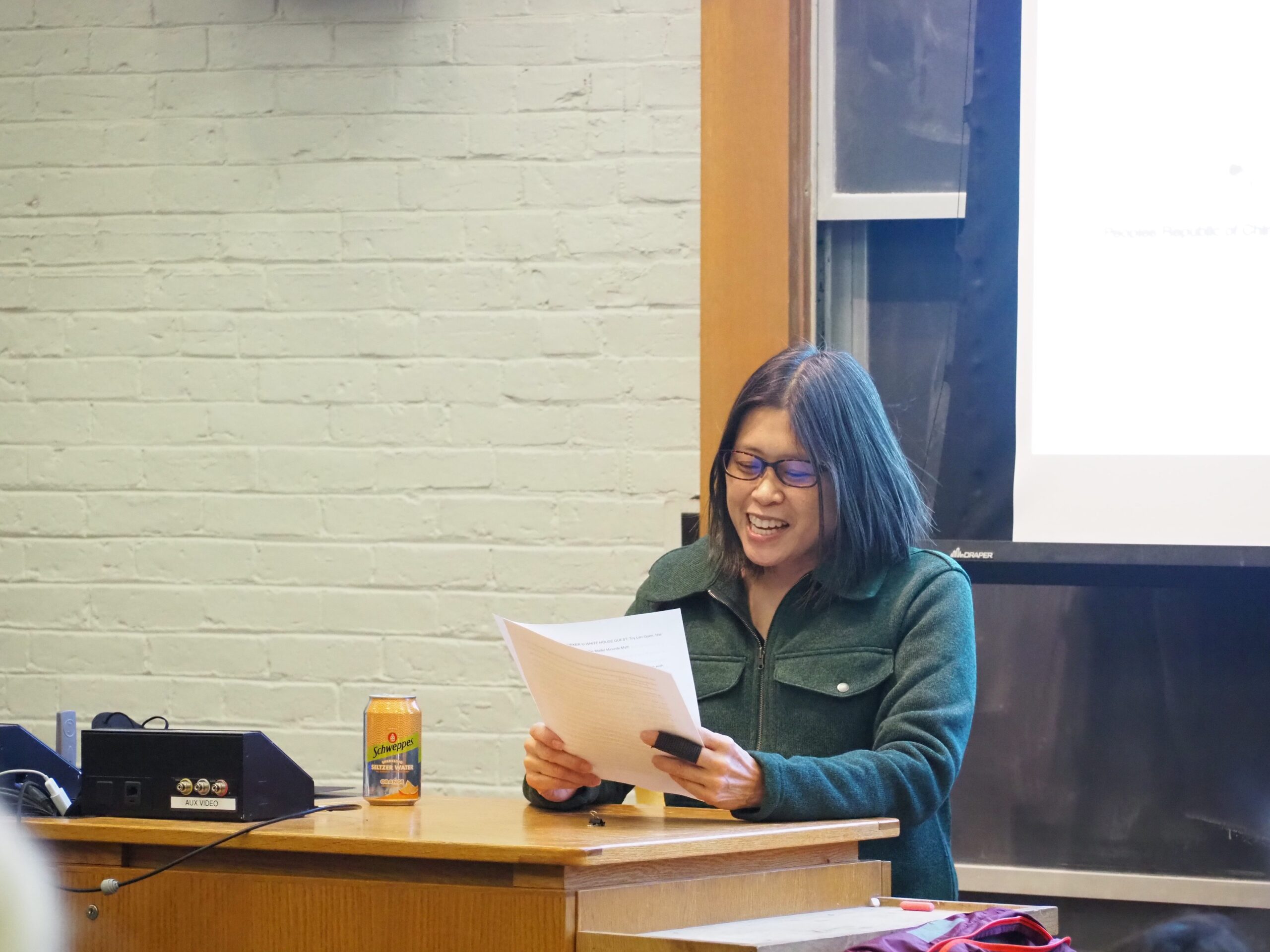Andrea Louie talks 1952 U.S. Mother of the Year
February 24, 2023
 Chinwe Bruns
Chinwe BrunsOn Wednesday, Professor of Anthropology at Michigan State University Andrea Louie ’89 examined the model minority myth through an unconventional lens: lecturing about her grandmother. Selected as the U.S. Mother of the Year in 1952, Toy Len Goon was a Chinese immigrant who ran a hand laundry in Portland, Maine. Louie is currently working on a book project on the story of her grandmother with the NYU Press.
“I want [Bowdoin students] to be aware there was a Chinese-American Mother of the Year from Portland, Maine. She came from these very challenging, humble beginnings and worked hard in the laundry with her family,” Louie said. “I think that’s an important part of Maine history that a lot of people don’t realize.”
In 1952, reporters transformed Toy Len Goon’s immigration story into a version of the model minority myth, a shining example of reward due to hard work. In her version, Louie wants to explore the more complex factors behind Toy Len Goon’s recognition.
“There’s a lot more to the story,” Louie said. “My grandmother wasn’t just a mother; her role was actually a lot more complex than that.”
For Louie, Toy Len Goon’s story extended beyond a successful nuclear family. At the time, the U.S. was fending off Soviet criticisms of being oppressive toward minorities. Thus, Louie noted, Toy Len Goon’s award may have carried political motivations on the international stage.
On a more local level, Toy Len Goon had deep connections in a Maine community that welcomed but also perpetuated racist sentiments against Asian immigrants. Even within the laundry’s layout, Louie noted the physical separation between public and private spaces along with the impact of gender roles in the division of labor.
Louie graduated from Bowdoin in 1989 and is an anthropology professor and founder of the Asian Pacific American Studies Program at Michigan State University. In particular, Louie recalls Professor of Anthropology Harald Prins, now retired, noticing a sweatshirt she once wore that read, “China: 5000 years of history.” Seeing that Louie held a sense of pride about her identity, Prins encouraged her to write a comparative paper about Native American and Chinese American experiences.
“He encouraged me to compare two novels: one by Louise Erdrich and one by Maxine Hong Kingston,” Louie said. “I wrote this paper during my first anthropology class in my second semester, freshman year, and it gave me the idea that a professor was telling me to think for [my] own identity within an academic context.”
Although well-established in the anthropology field now, Louie admits she never expected to write a whole book on her family history.
“When I was at Bowdoin, I always wanted to understand the broader context—not just for my family story, but for everything,” Louie said. “[But] I never thought when I was a student here that I could write a whole book about my grandmother’s story or that there would be so many interesting aspects to it.”
This Wednesday was Louie’s first major visit to Bowdoin since her graduation. Since her time here, Louie noticed a distinct change in the student body.
“The student population seems so much more diverse than before,” Louie said. “I think the students are so much more aware of what’s going on in the world. The questions I got were amazing.”

Comments
Before submitting a comment, please review our comment policy. Some key points from the policy: